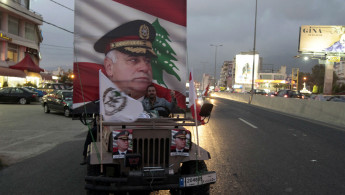Lebanon: Divisions over appointment of army and security chiefs
Lebanon's army chief has warned that political divisions in the country are compromising security.
General Jean Kahwaji said during a meeting last Friday with Maronite Patriarch Beshara al-Rahi that conflict between politicians risked damaging the military establishment's image at a time when it as facing some of its toughest challenges.
"The recent debate over the military establishment is atypical and has become unbearable," Kahwaji was quoted as saying in a report published by As-Safir, a leading Arabic language daily in Lebanon, reported the Lebanese newspaper The Daily Star.
Lebanese politicians are divided over the appointment of a new army commander when Kahwaji's term ends in September, and the appointment of a new head of the Internal Security Forces whose term ended earlier this month.
Michel Aoun, Christian leader of the Free Patriotic Movement, which is part of the Shia-led March 8 political alliance, has opposed the extension of both their terms and called for them to be replaced, according to The Daily Star.
| Lebanese politicians are currently divided over the appointment of a new army commander. |
However, the Future Movement, the main party in the Sunni-led March 14 political alliance, and other Christian parties have said a new army commander should not be appointed until a new president is elected that can select a new army leader.
The term of the last president, Michel Suleiman, expired on 25 May 2014, and due to political divisions a successor has not yet been chosen.
Speaker of Parliament, Nabih Berri, has called for Kahwaji's term to be extended by two years if a successor cannot be found. This will allow the army to continue its work without being obstructed.
The security situation in Lebanon remains fragile, especially around Arsal in the northeast of the country. The border town has suffered frequent attacks from al-Nusra Front and Islamic State group.
In August 2014, a number of Lebanese soldiers were kidnapped by jihadists during the Battle of Arsal. Some have still not been released.
Kahwaji's call for political unity came two days after the US delivered 200 TOW-II missiles to and dozens of launchers to help defend Lebanon's borders from terrorists.
A daily earlier Lebanese Prime Minister Tammam Salam told a news conference after meeting Kahwaji, that the army's unity was Lebanon's best line of defence against the current instability:
"What helps the Lebanese army the most is the atmosphere inside the institution - the national and unified atmosphere that doesn't know sectarianism or factionalism."



